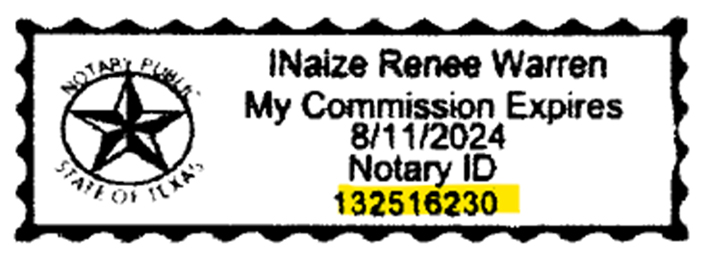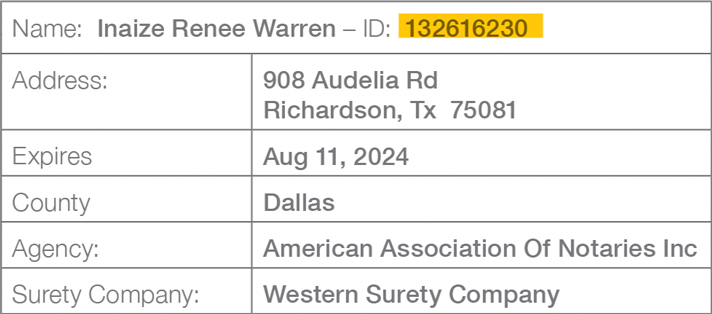|
Many real estate investors refer to themselves as wholesalers. These are individuals who find properties to purchase. They enter into a purchase agreement, but prior to closing find a different buyer to ultimately purchase the property; usually for a fee or increase in the original sales price.
The property is not listed for sale with licensed real estate agents which is why the wholesaler is able to sell the property to another buyer so quickly.
Amanda Clower, escrow operations director for Alamo Title Company in Irving, Texas, was working with a long-time customer who was purchasing a property with seven agricultural acres in Colleyville, Texas, from a wholesaler.
The wholesaler was purchasing the land for $925,000 and then reselling it to Amanda’s customer for $1.4 million. The wholesaler insisted both deals close with “Hole-in-the-Wall Title Company.”
After some questions and answers between the ultimate buyer and the less qualified escrow officer about the structure of the transactions at Hole-in-the-Wall Title, the wholesaler allowed the ultimate buyer to move the second leg of the double escrow to Amanda’s office.
For a double escrow transaction to successfully close, both parts of the transaction must be handled by the same office using the same escrow trust account since the proceeds from the second sale have to fund the first leg of the transaction. As a result, the first leg eventually transferred to Amanda.
Amanda thought it was odd the ultimate buyer was able to easily negotiate a $74,000 reduction in sales price due to roll-back taxes that would become due and payable after closing. She then noticed the property owner was listed as a Church Ministry from South Carolina in the public records, however, the seller listed on the initial purchase and sale agreement was an individual who purportedly owned Way Below Retail, LLC.
The deeds in the chain of title reflected the ministry took title to the property on October 4, 2019. But there was a second deed dated February 2, 2021, that was not recorded until August 11, 2023. This is why the public records had not been updated to reflect the owner as Way Below Retail, LLC.
It seemed strange to Amanda that the LLC would hold the deed for two and a half years without recording it. She questioned the representative of Way Below Retail, LLC, who explained he had been making payments in cash to the ministry in a church parking lot for the last two and a half years and, per their agreement, he could not record the deed until the loan was fully repaid.
The seller claimed he would meet the secretary from the church in the parking lot every month. The seller had no evidence of a note or deed of trust securing that loan.
Amanda looked closer at the deed recorded in 2023, and it appeared to be signed by the pastor and secretary of the church in Tarrant County, Texas, even though the church was located in South Carolina.
Her gut was telling her something was awry. The grantee on the deed, Way Below Retail, LLC, included a completed notarial certificate for the owner, but the owner never signed the deed. Amanda looked up the commissioned notary using the Secretary of State website.

The notary identification number listed on the website was one digit off.

Amanda reached out to the title company that closed and insured the 2019 purchase by the South Carolina Ministry and discovered the purchase price at that time was $500,000 less than the purchase price in her first transaction.
Amanda called the attorney who represented the church in that transaction and was able to obtain an email address for someone in the church ministry. She reached out to confirm they had really sold the property to Way Below Retail, LLC, but the message came back as undeliverable.
Amanda was leery of the deals and then out of nowhere her undeliverable email was answered by someone at the church. They provided the contact information for the real estate agent who represented the church in the 2019 purchase.
Amanda reached out to the real estate agent who confirmed the deed recorded in 2023 was forged, the property was never legally conveyed to Way Below Retail, LLC and the property was not currently for sale either.
Amanda was relieved her suspicions were confirmed. She immediately resigned from both transactions returning the funds on deposit back to their original remitters. The real estate agent who confirmed the church never sold the property to Way Below Retail, LLC is also a commercial broker. The broker was so appreciative of Amanda’s determination to discover if the transaction was legitimate and that she protected the church’s ownership — that he committed to bring his next transaction to Alamo Title Company.
Amanda’s investor customer who would have been the ultimate purchaser was equally as ecstatic for Amanda’s sleuthing abilities and the fact she saved him from purchasing a property from a fraudulent seller.
Amanda saved the Company from two potential claims — one from the wholesaler and another from the ultimate buyer — totaling more than $2 million. Her efforts are being rewarded by the Company with a letter of recognition and a $1,500 reward.
|